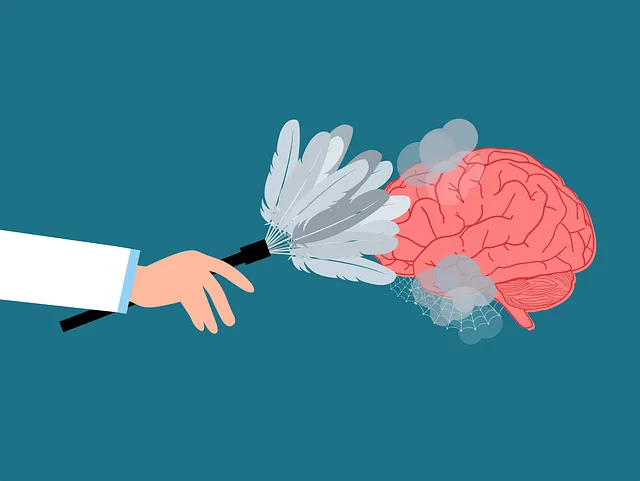Kaiser Permanente Centennial prioritizes Kaiser Permanente behavioral health providers Centennial burnout prevention through comprehensive studies, tailored strategies, and a culture of care. Their approach includes risk assessments, enhanced support systems, training in stress management, structured risk planning, flexible work arrangements, and self-care promotion. By building resilience through mindfulness, open communication, and healthy work-life balance, Kaiser Permanente Centennial strives to create a sustainable, supportive environment for its behavioral health providers.
“In today’s demanding healthcare landscape, addressing burnout among Kaiser Permanente behavioral health providers at Centennial is paramount. This comprehensive guide explores effective prevention strategies tailored specifically for this critical workforce. We delve into understanding the unique challenges they face, recognizing early signs of burnout, and creating supportive environments.
By implementing self-care practices and fostering resilience, we aim to equip professionals with tools to thrive. These strategies, drawn from real-world experiences at Kaiser Permanente Centennial, are designed to revolutionize wellness and enhance patient care.”
- Understanding Burnout Among Behavioral Health Providers at Kaiser Permanente Centennial
- Identifying Red Flags: Recognizing the Signs of Burnout Early
- Creating a Supportive Work Environment to Prevent Burnout
- Implementing Effective Self-Care Practices for Behavioral Health Professionals
- Building Resilience and Fostering a Culture of Well-being
Understanding Burnout Among Behavioral Health Providers at Kaiser Permanente Centennial

At Kaiser Permanente Centennial, understanding burnout among behavioral health providers is a top priority. This organization recognizes that the demanding nature of mental health work can lead to significant stress and exhaustion for frontline professionals. Behavioral health providers, often tasked with complex cases and high patient loads, are at an increased risk of experiencing burnout, which can negatively impact both their well-being and the quality of care they deliver.
Through comprehensive studies and risk assessments, Kaiser Permanente Centennial has been implementing tailored burnout prevention strategies. These initiatives include enhanced support systems, regular staff training on stress management and resilience-building techniques, as well as structured risk management planning for mental health professionals. By prioritizing burnout prevention, the organization aims to foster a healthier work environment, boost employee satisfaction, and ultimately improve patient outcomes for Kaiser Permanente behavioral health providers in Centennial.
Identifying Red Flags: Recognizing the Signs of Burnout Early

Burnout among healthcare providers, especially behavioral health professionals like those at Kaiser Permanente Centennial, is a growing concern. Recognizing the signs early is crucial for preventing this issue. Behavioral health providers often deal with intense emotional demands and high-stress situations, which can lead to feelings of exhaustion, cynicism, and detachment from work—all indicators of burnout.
To mitigate this, professionals should be vigilant in identifying red flags such as persistent fatigue, changes in sleep patterns, increased irritability or difficulty concentrating, and a growing sense of dissatisfaction with work. Organizations like Kaiser Permanente can support their behavioral health providers by promoting emotional well-being through Risk Management Planning for Mental Health Professionals and implementing Anxiety Relief techniques. These proactive measures ensure that mental health professionals are equipped to handle workplace stress effectively.
Creating a Supportive Work Environment to Prevent Burnout

At Kaiser Permanente, behavioral health providers in Centennial play a vital role in fostering a supportive work environment that prevents burnout. This involves implementing policies that promote work-life balance, such as flexible scheduling and mental health days. Additionally, encouraging open communication among colleagues and providing regular opportunities for professional development helps build a culture of support and resilience.
A robust Mental Health Policy Analysis and Advocacy initiative ensures that providers have access to resources aimed at enhancing their mental wellness and inner strength development. This includes peer-to-peer support groups, mindfulness training programs, and regular check-ins with wellness coordinators. By prioritizing the well-being of behavioral health providers, Kaiser Permanente aims to create a sustainable work environment where professionals can thrive without succumbing to burnout.
Implementing Effective Self-Care Practices for Behavioral Health Professionals

At Kaiser Permanente Centennial, recognizing the critical role behavioral health professionals play in our community, we emphasize the importance of self-care practices to prevent burnout and promote longevity in this demanding field. These professionals often bear the emotional weight of their patients’ struggles, making it essential for them to prioritize their mental well-being. Effective self-care strategies are not just individual choices but necessary components of a comprehensive Mental Health Policy Analysis and Advocacy framework.
By integrating regular exercise, mindfulness practices, and adequate sleep into daily routines, Kaiser Permanente behavioral health providers can enhance their resilience against stress. Additionally, seeking peer support and engaging in activities outside of work contribute to a healthier work-life balance, alleviating symptoms of anxiety relief. Conducting periodic risk assessments for mental health professionals is also vital to identify early signs of burnout or distress, allowing for timely interventions before they escalate.
Building Resilience and Fostering a Culture of Well-being

Building resilience among healthcare providers, especially Kaiser Permanente behavioral health providers in Centennial, is a key strategy to combat burnout. This involves equipping them with tools and techniques that enhance their ability to adapt and cope with stress. Mindfulness meditation and mind over matter principles have proven effective in this regard, fostering emotional balance and enhancing mental toughness. By integrating these practices into their daily routines, providers can better navigate the demands of their work while maintaining a sense of well-being.
Moreover, fostering a culture of well-being within healthcare institutions is vital. This includes creating an environment that supports open communication, encourages healthy work-life balance, and promotes cultural sensitivity in mental healthcare practice. Such initiatives ensure that providers feel valued, respected, and empowered to prioritize their own mental health. In turn, this strengthens their ability to provide compassionate and effective care to their patients.
Burnout among Kaiser Permanente behavioral health providers at Centennial is a growing concern, but with proactive strategies, it can be mitigated. By understanding the unique challenges these professionals face, implementing supportive work environments, encouraging self-care, and building resilience, healthcare organizations like Kaiser Permanente can foster a culture of well-being. Early recognition of burnout signs and effective interventions are key to preserving the mental health and overall well-being of Kaiser Permanente’s behavioral health providers in Centennial.






